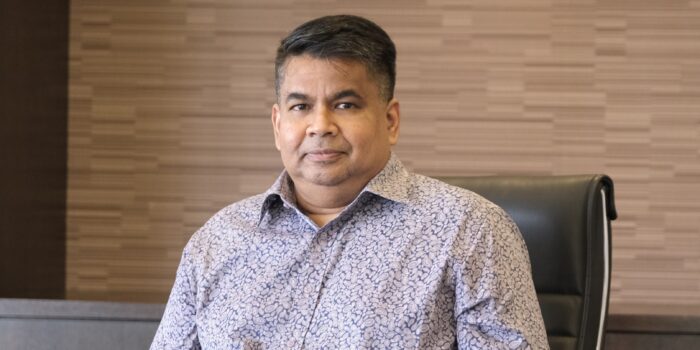THINK tank EMIR Research has earmarked seven key performance indicators (KPI’s) for newly minted Prime Minister Datuk Seri Anwar Ibrahim’s unity government.
The think tank’s president and CEO Datuk Dr Rais Hussin said the administration is in dire need of an “Innovation Agenda” (IA) aimed squarely at social, institutional and economic challenges that demand the government’s most immediate attention.
The seven KPIs are as follows:
- Unity and tolerance: For the contemporary version of Anwar Ibrahim’s Reformasi movement to have any chance of adoption and scalability, the citizenry must place the nation first, especially above sect and creed.
Only by espousing a common identity can the collective interest of society be served with new policies, initiatives, and programmes designed to lift all the rakyat together.
- Radical transparency and good governance: Malaysians are in equal measures disheartened and disgusted by the widespread and endemic corruption that has come to characterise their government.
Today, Reformasi means implementing genuine institutional reforms that impedes the tendency to rush to land-grab funding allocations from one administration to the next; instead moving towards an impact-oriented use of government resources that quantifies and measures outcomes and results.

- Curbing costs: Soaring base-line inflation in essential items like food, healthcare, education and housing will not only destroy the quality of life for the average Malaysian, but will also eradicate his ability to support top-line growth from elective consumption of anything beyond the bare necessities.
This will sink the whole economy deep into the red and reduce purchasing power just as prices spiral out of control. Disintermediation of inefficiencies and breaking up monopolies should be the administration’s top priority, ie by dismantling of bloated value chains with restricted approved permits such as rice, sugar and other agricultural items.
- Food security: Harsh lessons learned from the global pandemic need to be structurally resolved to prevent its recurrence such as addressing the country’s net RM65 bil annual food imports, by increasing the current arable landbank (land used for agrofood) from a meagre 2% to 10%.
The government and agricultural GLC’s (government-linked companies) must take the lead to invest into and promoting use of innovative technologies and sustainable practices in farming, fishing and livestock so that they become innovation industries that are capable of attracting knowledge workers and youths back to the land and sea with higher wages and better working conditions.
- Digital transformation: The digital economy that flourished during the global lockdowns le and set a course which is now inevitable and from which there is no turning back.
On the contrary, the government must catalyse this by complementing local start-ups with internationally sourced IP and knowledge transfer from wherever it exists so that it not only finds a thriving community and ecosystem in Malaysia but also serves as a launching pad for spring-boarding into the exciting digital marketplaces in Southeast Asia.
When Anwar last left a ruling administration during the Asian financial Crisis (1997-1998), Malaysia and South Korea were equal peers in terms of technological advancement and economic development but Malaysia today is trailing far behind in terms of progress – something that must not be allowed to repeat itself given Malaysia has many ambitious ASEAN neighbours.
- Sunrise technologies: Cleantech companies will surely become the largest enterprises in the world, replacing the tech giants in the not too distant future.
This has already spawned exponential growth in electric vehicles (EV) and carbon management, in drones and robotics, in sustainability and clean energy. Indeed, Cleantech will expand to encompass all industry as well as the companies and people that comprise them.
Like the best innovation economies elsewhere, Malaysians must leverage their expertise and competitiveness to adapt with government playing its role with policies, incentives and directives that promote a smooth migration.
- Foreign investment: The time has come to reverse Malaysia’s diminishing role as an investment destination of choice. For too long, foreign investment have side-stepped Malaysia in favour of its neighbours’ capital markets, project finance and development funding.
This administration must build up its public and private marketplaces and exchanges so that it is worthy of attracting global funding sources looking for high quality, high tech and high value investment returns.
Likewise, Malaysia be able to offer attractive incentives to local and expatriate knowledge workers, and make available robust physical and digital infrastructure, consistent business friendly policies, strict compliance and good governance.
Equally, Malaysia must itself develop into a regional financial hub, providing efficient sources of capital from local and foreign sources alike. – Dec 2, 2022









